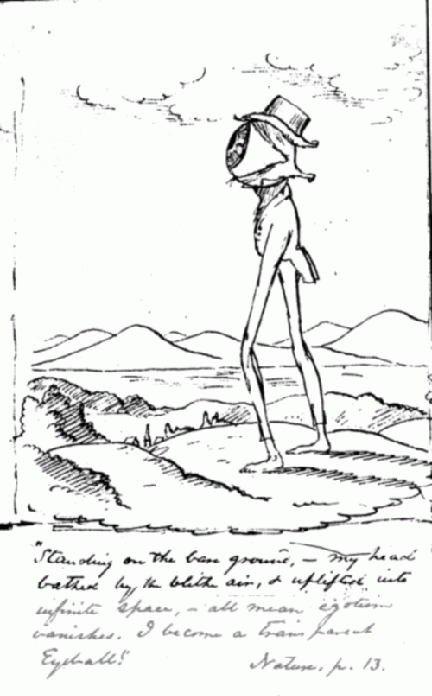Calvinism and Transcendentalism
Calvinism is a system of theological thought found in the doctrinal expressions of the Reformed and Presbyterian churches, from Calvin's Institutes of the Christian Religion.
The Five Points of Calvinism (often remembered through the acronym T U L I P)
1. Total depravity. Man is naturally unable to exercise free will, since through Adam's fall he has suffered hereditary corruption.
2. Unconditional election. Election manifests itself through God's wisdom to elect those to be saved, despite their inability to perform saving works.
3. Limited atonement. Man's hereditary corruption is partially atoned for by Christ, and this atonement is provided to the elect through the Holy Spirit.
4. Irresistible and prevenient grace, made only to the elect.
5. Perseverance of saints. Those who are predetermined as elect inevitably persevere in the path of holiness.
Transcendentalism
William Henry Channing(1810-1844)
"Transcendentalism, as viewed by its disciples, was a pilgrimage from the idolatrous world of creeds and rituals to the temple of the Living God in the soul."

Ralph Waldo Emerson, Nature (1836)
"Standing on the bare ground,--my head bathed by the blithe air, and uplifted into infinite space,--all mean egotism vanishes. I become a transparent eye-ball. I am nothing. I see all. The currents of the Universal Being circulate through me; I am part or parcel of God" (996).
Key Ideas in Transcendentalism
· Transcendentalism posits a distinction between "Understanding," or the normal means of apprehending truth through the senses, and "Reason," a higher, more intuitive form of perception.
· According to Emerson, reason is "the highest faculty of the soul--what we mean by the soul itself; it never reasons, never proves, it simply perceives; it is vision." By contrast, "The Understanding toils all the time, compares, contrives, adds, argues, near sighed but strong-sighted, dwelling in the present the expedient the customary" (L1:412-413).
· Transcendentalism, like other Romantic movements, proposes that the essential nature of human beings is good and that, left in a state of nature, human beings would seek the good.
· Transcendentalism also takes the Romantic view of man's steady degeneration from childhood to adulthood as he is corrupted by culture: "A man is a god in ruins."
Other ideas important to transcendentalism
1. Nature as teacher, nurturer, discipline. The best part of humanity can be found through community with nature, a belief shared with Romantic poets such as Wordsworth.
2. Microcosm and macrocosm: each part of nature contains all within it.
3. Principle of analogy, of perceiving correspondences: "[M]an is an analogist, and studies relations in all objects."
4. Emblematic Nature: "Every natural fact is a symbol of some spiritual fact."
5. Universal soul ("Oversoul"): "Meantime within man is the soul of the whole; the wise silence; the universal beauty, to which every part and particle is equally related."
6. The principle of organicism; the concept of the circle.
7. Perfectionism and optimism: “Trust thyself: Every heart vibrates to that iron string.”